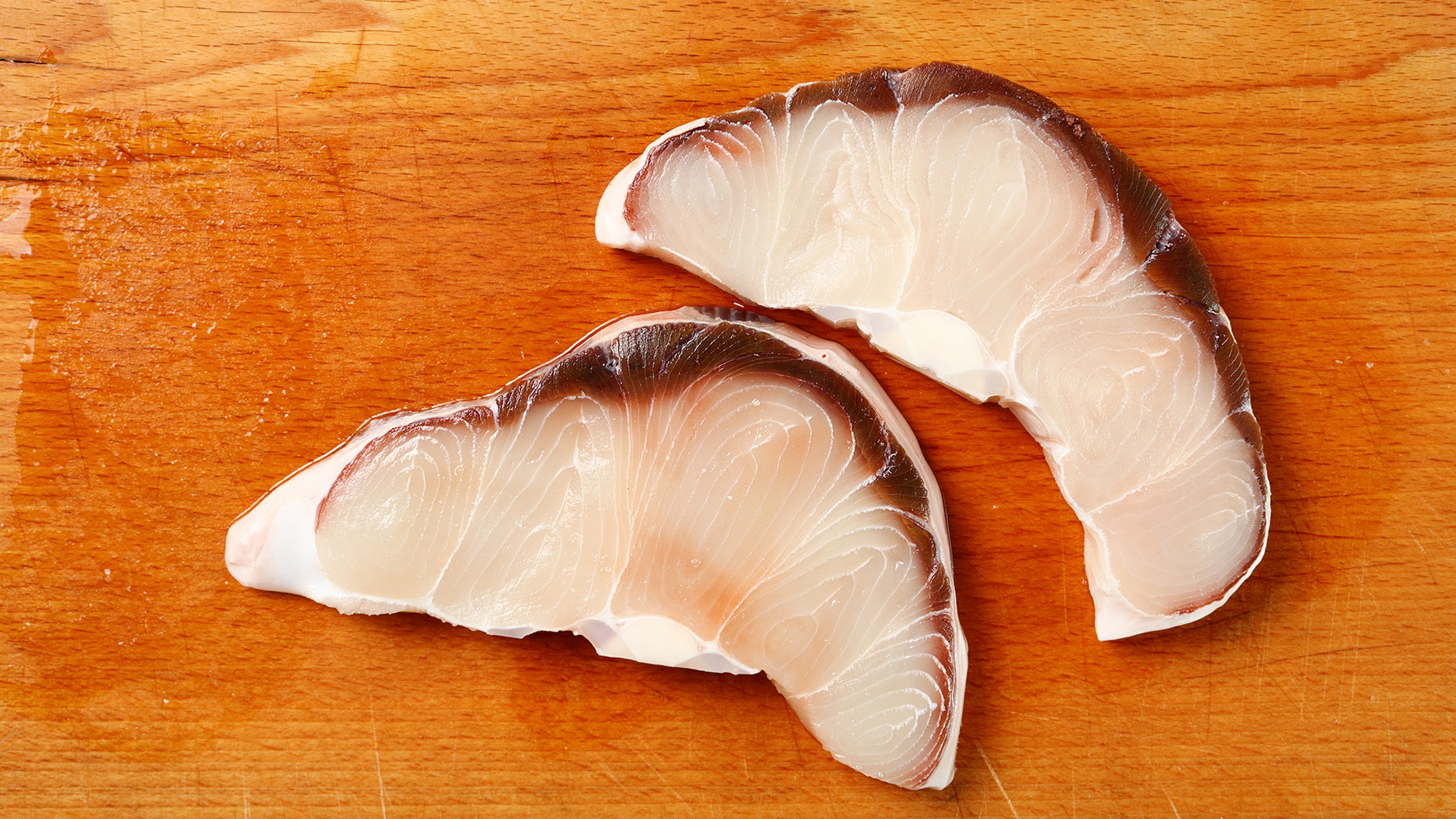The Government Suggests You Eat More Shark
In addition to getting your five daily servings of fruits and vegetables, and choosing whole grains, and limiting "sometimes foods," we are now encouraged by the government to take up yet another culinary goal: Eat more shark.
A new statement issued by the National Oceanic And Atmospheric Association's Fisheries department begins with a clear directive: "As you scan the seafood counter in search of new foods, keep a look out for U.S.-caught shark." This might raise eyebrows, as Americans have traditionally been told shark populations aren't healthy enough to support more consumption. The Monterey Bay Aquarium's Seafood Watch List lists all sharks under the "avoid" category (Editor's Note: While the condensed version of the aquarium's Seafood Watch list lumps all sharks together under "avoid," a more detailed drill-down indicates that one shark species is listed as "best choice," 10 species are listed as "good alternatives" and 31 species are listed as "avoid.").
So what's behind the conflicting information? Randy Blankinship, a fisheries management specialist from NOAA, says in the statement that American shark fishermen have worked within strict guidelines for years, and "their decades of stewardship should be recognized at the market." No shark species are currently listed as endangered in U.S. waters; two species are threatened.
Still, some scientists are skeptical of the government's directive to Eat Mor Shrk. Sharks are big ocean predators; they take years to grow to maturity and have a relatively long life span. "Sharks simply breed too slowly," Marie Levine, founder of the Shark Research Institute conservation group, tells New Food Economy. "There is no such thing as sustainable harvesting of sharks."
A report issued this past spring by the Shark Species Group for the International Commission for the Conservation of Atlantic Tunas found that even if total allowable catch (TAC) of shortfin mako sharks was reduced to zero—meaning, no shortfin makos were caught—"the stock will continue to decline until 2035 before any biomass increases can occur." In layman's terms, even if we stopped catching shortfin mako right now, we wouldn't see the population begin to recover until 2035.
Of course, many species comprise the large category of "sharks," and some species may be in more need of fishing limits than others. Overall, scientists seem divided on the fundamental issue of sharks' general suitability as an increasing part of Americans' diets, but that's not reflected in the new NOAA advisory. According to NOAA, it's open season.
